In search of the perfect screenplay
At a party recently, I was introduced to a typical banker boy. After awkward hellos he asked me what I do. I replied, "I'm a Creative Developer at Dharma Productions."
He frowned, clearly not knowing what it meant. "I read screenplays that come into Dharma," I explained, "I decide which scripts are worthwhile and hand them over to Karan Johar, who decides if he wants to produce them!" He nodded wisely and said, "Oh so you just read scripts." I laughed, and corrected him. "I don't just' read scripts. I read them, discuss them with the writer, ask for changes, and also develop scripts from scratch when required.
All you need is a laptop and script software! Instant screenplay writer! Thanks to technology, there are more unproduced screenplays than there are photos of Alia Bhatt. And 99 per cent of them are utterly mediocre. I know this because each year I read about 100 to 200 screenplays.
With the business of movies growing by leaps and bounds most leading production houses or studios today have their own creative/content development department, which filter the scripts to good, bad and ugly. Ten years ago such a process didn't exist. Even the concept of bound scripts was almost alien back then. Dharma Productions was one of the first production houses to start a creative department.
But while there is an attempt to professionalise the entire mechanism, certain basics are still not followed. Many a times aspiring writers confidently hand you an inept piece of writing without a second thought, because they believe you just have to come up with a story to make a cool movie. And sometimes even the story is just a bunch of incidents, with barely fleshed out characters.
After five years of combing through innumerable scripts I've made a list of 10 things that I have observed about script submissions. While they are not a formula to write a great script, hopefully reading them can help an aspiring writer communicate with me (or anyone else in my position) better.
1. First, please be sensitive to the person reading your script. It rarely takes more than a page to recognise great writing. And it takes just a sentence to know you're dealing with someone who can't write. Nobody loves reading scripts peppered with typo errors, incorrect usage of apostrophes, wrongly used words, random character names, screenplay formatting errors, confusing sentence structure, and such other annoying distractions. Good grammar and correct formatting are basic requirements. If your script lacks clarity and accuracy of language use, you fail to communicate your thought clearly. So have the simple courtesy. Please spell check, proofread and format your screenplay before you hit send! Why should I work hard at reading your work?
2. The normal length of a screenplay is between 90 to 120 pages. Please don't expect anyone to read 150 to 170 pages. Write a novel, in that case.
3. If your script is a page-turner and engages me from FADE IN to FADE OUT, I'm interested. Most writers make the mistake of writing epics', with huge star cast and awards in mind, shamelessly claiming their masterpiece is the "the best script you've ever read"! Please just write a simple screenplay that comes from your heart, and that is impressive enough. And let others decide and call your work a masterpiece'. Humility is still a cherished virtue.
4. One is constantly looking for a dynamic story or element, something quirky and fun, something that connects universally, something that is unique! Unfortunately, most screenplays lack the X-factor. That's when you need to find a way to add it or rewrite your screenplay again. Just because you are pitching your script to Dharma Productions doesn't mean every script has to begin with the New York skyline. Let me break it to you. We do not expect romcoms all the time! We have enough in-house directors who are experts at writing them.
5. When a writer pitches his or her script, I wonder, Would I want to see this movie? Is it different than anything I've seen before, or is it the same old thing only with a slight twist?' The writer should ask the same! One hopes for something original. Not a variation of a film that's already out there. But most importantly, you need to believe in what you are saying. If you're not committed to your script, how can I be?
6. The first 10 pages are the most important of your screenplay. Initially, I read every script from start to end, out of sheer empathy for the writers. Gradually, I realised I was wasting my time. I put down a script if it doesn't engage me within the first ten pages. I've always loved movies that grab you by the balls in the first few minutes. You should be able to draw me in to the world and feel for the characters in that world. Most scripts begin with precision, but lack the ability to engage. They are so lackluster that they end up in the reject' pile.
7. Most writers or aspiring directors have no presentation skills. They ramble and lose track of their own screenplay. If you don't know the beginning, middle or end of your story or lack clarity, confidence or passion, you've lost me. Writers or directors who come with names of actors or actresses to play the lead or directors who were apt for the film, or have clear references, or know their characters and scenes to the T, come across as ones with clarity that comes from having lived with their film.
8. It's not easy telling someone that his or her script won't make the cut because it's bad. While I want to tell you the truth, I also don't want come across as harsh and ruthless. Hence, I've often found myself rewriting my feedback many more times than the writer rewrites his or her screenplay. While some take the criticism on their chin, many balk, claiming I don't know anything about screenwriting. You would think writers often expect an honest opinion, real criticism. But they rarely do. What they really want is a few notes to give the illusion of honesty.
9. Some screenplays have the power to dazzle you. While some, bore you to tears. Many are written well, but loaded with stereotypes and predictable scenarios. Only 1 per cent of scripts engages, enthralls and stays with me. It's difficult to pinpoint what separates the good one from the bad. Despite what the experts say, screenwriting is an art, not a science. There's no formula for writing a kick-ass script. You've got to bend the rules and challenge expectations. It's easier feeding into what is expected.
10. If you've been fortunate enough to get your script accepted for a read please sit tight and be patient. How long did you take to write that script? Three months? Six? Or a year? How do you expect your script to be read in a day, a week or a month? Much as you would like it, yours isn't the only script that one has to read. There is a tsunami of scripts, and you are somewhere at the bottom. So, hang tight and wait!
Despite all of its hazards, this is the best thing I've ever done in my life! I meet new people everyday, some that dazzle you with their talent, I get to read new stories, meet new characters, enter exciting, new worlds... It's not a job. It's what I call a vacation, and I'm paid to do it!
The American screenwriting guru, Sydney Field said, "99 out of 100 screenplays I read aren't good enough. When you read a good screenplay, you know it " it's evident from page one. The style, the way the words are laid out on the page, the way the story is set up, the grasp of dramatic situation, the introduction of the main character, the basic premise or the problem of the screenplay " it's all set up in the first few pages of the script."
Being an eternal optimist, one is constantly in search of that rare but right screenplay... the one with an edge that will stand out, with a new voice that will sweep me off my feet. Who knows? It could be yours!
Ryan Stephen is a Creative Developer with Dharma Productions Pvt. Ltd and can be contacted on ryan@dharma-production.com
http://www.dnaindia.com/entertainment/column-in-search-of-the-perfect-screenplay-2109602













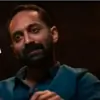










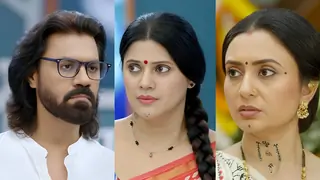


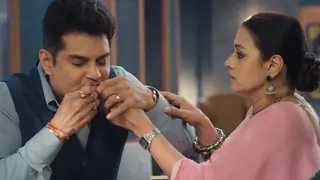

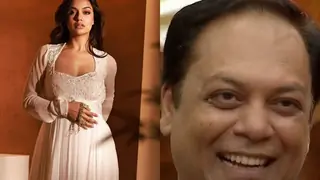


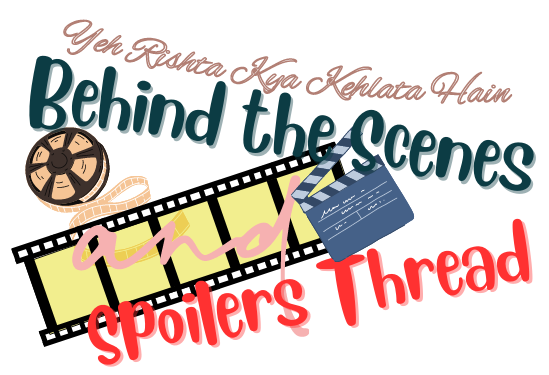


0